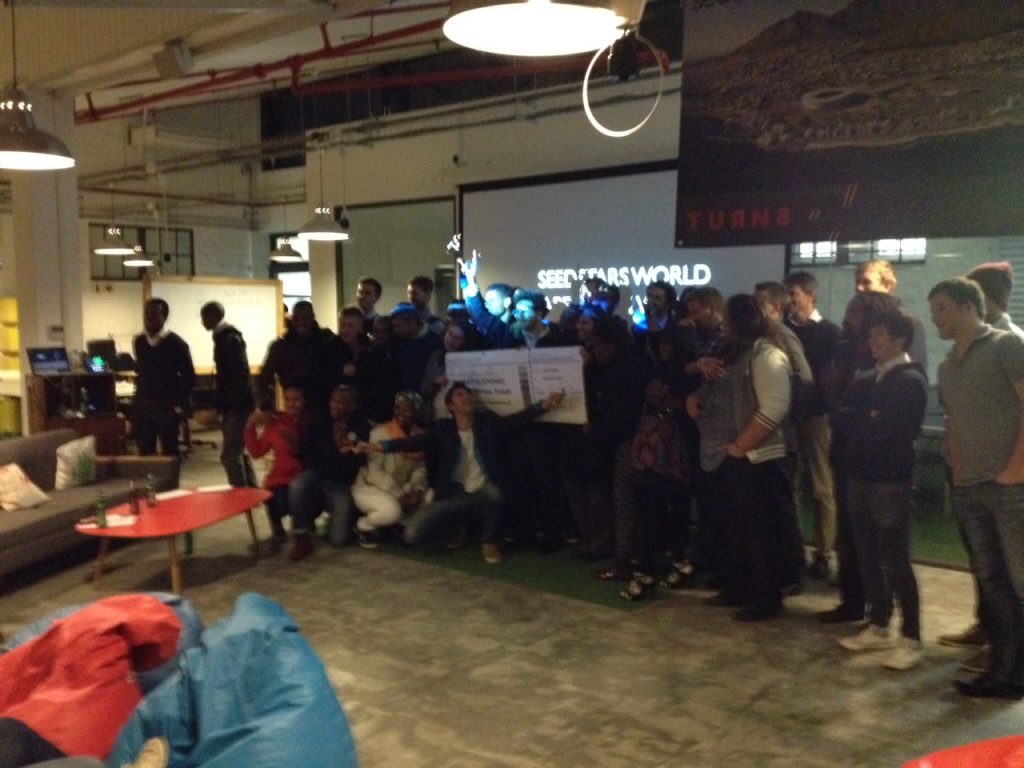Seedstars World finished its Africa tour back in mid-July, after visiting a number of hubs across the continent and picking startups for its global event in February of next year. Nellie Horn, who organised the tour, tells us what the Seedstars team saw and learnt during their trip.
What we saw were promising startups in a variety of fields. Since then we’ve been through Asia and started our Latin America tour. So how do Africa’s startup scenes compare?
Social businesses
Africa is experiencing a youth bulge that tops global charts. Uganda has the youngest population worldwide. This has left local youth with a unique entrepreneurial motivation and the will to improve and impact the economy is very strong. Different from other startup trends regarding social entrepreneurship, Africa is mainly focused on providing employment for local communities.
This will then often be combined with green tech, like Nigeria’s originally named Green Energy, or upcycling, agribusiness and education or health services. Another Seedstars World example is South African Lumkani, which seeks to address the challenge of fires in urban informal settlements.
Meanwhile, in some parts of the Middle East, the Arab Spring has revived local entrepreneurship and instilled a new sense of civil entrepreneurship. Tech products are used to mobilise communities, often engaging them in political discussions and working for a collective good. This can be seen in startups like sustainable energy business Saphon Energy and crowd sourced media enterprise 18 days in Egypt.
FinTech
The incredible success of M-Pesa has empowered several startups to profit from mobile money, remittance, and forex issues. Especially Uganda was a hot bed of FinTech activity. The lack of trust in banking systems, which has led to a majority of the population being unbanked, plus the high mobile penetration (mostly feature phones with heavy USSD usage) are important factors for these startups’ successes. Some examples include Remit.ug and Simple Pay, the latter of which Seedstars World invested in this year. Beam Remit, Ghana’s winner, meanwhile uses Bitcoin for remittances and money transfers.
While mobile money is taking off in other countries, most notably Eastern Europe, it still is not as popular as in Africa. However, financial services are changing, especially in Latin America. There, startups have taken it upon themselves to revolutionise consumer behaviour and product consumption. For example Ping Stamp, which has built an in-store reward system with tablets, ComparaGuru, Mexico’s first financial service aggregator, Ategia.pe, Peru’s first completely online car insurance broker, and La Vaca, Colombia’s solution to crowdfunding events with friends.
Regional consumer, mobile and e-commerce
Startups in consumer, mobile or e-commerce markets try to make the competitive market easier to enter by adding regional twists. In MENA, this means Arabic language and culture geared content, and many African startups choose to provide a platform for local providers. The draw in of these startup trends is the low cost and possibility to clone. Examples: Purchase African, Mela Crowd, Fruitech.
Meanwhile, South East Asia is on the forefront of mobile commerce. Thailand, for example, is currently enjoying rapid growth in terms of mobile and internet connectivity. Still, since PCs are too expensive, most prefer to buy a tablet or smartphone, effectively forcing online commerce to move to mobile. However, as WeChat’s social-to-sales-infrastructure shows, Asia is more than ready. Loyalty programmes and collaborations with brick and mortars already exist, as well as brand based service accounts. Just one impressive example: mobile phone provider Xiaomi created a fan base of more than one million people, which it sold 150,000 phones to within nine minutes of a new product launch.
Enterprise software
Africa may currently have a large informal sector, but with the growing economy, the rate of SMEs is increasing. Local business needs are addressed by SaaS startups, which are often tailored to meet their needs. It may not be the sexiest move, but it certainly is smart. In the nascent market with little competition, simplified software solutions for informal business and middle class users. What’s interesting is that they each tackle their own business problems, such as supply chain issues (Kenya’s OkHi), assistance to the informal sector (Senegal’s Poeyek), inventory and distribution (Rwanda’s Torque), or HR and payroll related topics (Ghana’s Paysail).
Asia’s widespread domestic growth and disillusionment with corporate and government have led to a stronger SME-focused sector. In Vietnam alone we had three SaaS startups, like Cloudjet Solutions, our third place winner, 1Data, and Asiaplus.


